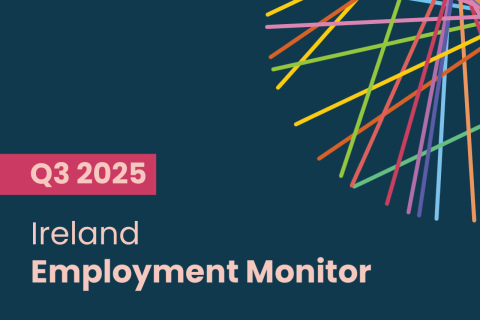Notice periods: Dos and Don'ts

Oops! This content is blocked.
To fix this, please allow all cookies on your browser. to adjust your cookie settings.
In a competitive talent market, companies are unsurprisingly reticent to part with staff - especially if they are an integral part of the team. This leads to a) three month notice periods and b) “buy backs” becoming increasingly common.
This obviously creates a number of problems for organisations. In many instances, a hiring business will:
a) Not want to wait for a prolonged period of time before their new member of staff starts (a lot can change in three months after all!) having already dedicated so much effort towards finding, interviewing and offering them the job.
b) Not want to be held ransom and have to pay substantially more on salaries than they initially had offered.
Find resignation letter templates below
- What is a notice period?
- Leaving before your notice period finishes
- Bonus: Resignation letter templates
What is a notice period?
Put simply, a notice period is the length of time an employee has to carry on working for their company once they have decided they are leaving.
Oops! This content is blocked.
To fix this, please allow all cookies on your browser. to adjust your cookie settings.
When does a notice period start?
Your notice period commences the day after your intent to resign has been recognised by your employer. For example, this will be the next day after you hand in a resignation letter.
How can you calculate your notice period?
The length of your notice period is often dictated by the amount of time you have been an employee at the business. Generally, the more senior you are, the longer your notice period will be. But this can vary from company to company.
Referring back to your original employment contract (or your updated one if you have received a promotion) will show you the exact duration.
What to do and what not to do during your notice period
1. Do: Know your contract
When you are at the interview stage, it is very important to be honest about your notice period and not to make false promises that you can start on a certain date, when in reality you are not 100% sure. It is imperative that you start on the right foot with your new employer, so make sure you know exactly how long your notice period is.
Beyond just your notice period, many contracts of employment will also contain post-termination restrictions. These may hamper where you can work, including what clients you can or cannot take with you. It is important you know what your contract contains.

2. Don't: Think that money is everything
It is widely recognised that the vast majority of people do not wish to move jobs solely because of money. Professionals change roles for a plethora of reasons; flexibility, better benefits or progression opportunities to name just a few. So then why are monetary counter-offers so prevalent and quite often taken?
If you find yourself with a counter offer from your present employer, always ask yourself; “Why has it taken until now for them to offer me a higher salary?”
You may be drawn in by the extra money and feel tempted to accept the counter-offer but remember, research has shown that 85% of people who stay with their present company when presented with a higher salary leave within the next calendar year – the money may change, but the job will very much stay the same!
Check out our new salary guide to compare salaries for specific roles across different industries and areas of expertise.
3. Do: Consider the viewpoint of your employer
You must take into account that your employer may be surprised or upset at you leaving, not to mention the possible headaches involved with hiring your replacement.
Although the last thing that they will want is an uncommitted employee staying around for too long, this must also be balanced on not leaving a team understaffed. The more help that you give at this point will potentially result in your notice period being reduced. This could include suggestions about sourcing your replacement, detailed and thorough handover notes being put together and even assisting writing the job description for your role (we have a few free templates that might help you here).
If life is made difficult for you, then take this as a compliment; it suggests your boss really does not want you to leave!
4. Do: Think about enhancing your career prospects
Taking active steps to improve your future career prospects, otherwise known as career cushioning, is definitely something to think about during your notice period.
What skills are particularly in demand for your role? Can you spend a bit of time strengthening your knowledge in those particular areas? Either upskilling or reskilling will help with your career progression.
5. Do: Be honest in your exit interview
Your employer is likely to arrange an exit interview to find out why you are leaving. They do this to improve their retention rates and gather insight into the perceptions of their culture.
Try to offer constructive advice, but be honest and polite. Remember, you never know when you are going to cross paths with former employees in the future, so professionalism to the end, no matter the situation, is a must!
Leaving before your notice period finishes
What happens when you have secured a new role and want to leave sooner than the stipulated notice period states?
Depending on your relationship with the business and how strict they are on these matters, there is a good chance that you will be able to leave your role before your notice period is complete.
Can I shorten my notice period?
In some instances, you may be able to negotiate and move your leaving date forward.
If you enter into a negotiation with your employer about reducing the length of your notice period, remember these key 4 things:
- Do it in writing, and stipulate a planned leaving date.
- Check how many holidays you have left and use this to reduce your notice period.
- Be gracious and professional right to the end, as this will serve you better in the long run - especially for future unexpected run-ins with ex-colleagues!
- Provide detailed handover notes, including work and projects that need to be handed over to the correct people as well as how long it will take you to complete any existing work.
If you are unable to secure a faster exit than you may have wanted, do not give up hope. Keep your manager posted daily on completion of tasks and if you are on track for completion sooner than expected, you can always put in another request for early release.
What happens if you call in sick during notice period?
If you happen to become unwell during your notice period, you are still entitled to your full normal pay and it won’t increase the length of your notice period.
In summary...
Seeing out your notice period is an odd time in your career; almost as if you’re in limbo. Try to remain positive, regardless of the reason for your departure, carry on with your everyday tasks like normal and remember to be professional.
If the job you are soon to be joining really is the opportunity of your dreams, then your future employer will wait for you, no matter how long your notice period is. If they do not, then take it as a sign that it’s not the job for you!
Equally, if you are a professional and are looking for your next career move, we have a range of jobs available - you can browse them here.
Bonus: Resignation letter templates
The step prior to seeing out your notice period is writing a resignation letter that you can send to your manager. It is often tricky to put into words exactly why you want to leave your job, so we have created a number of templates for a range of different scenarios below.
1. Basic resignation letter template - If you want to keep it relatively simple and short, a basic letter is perfect.
2. New job resignation letter template - For when you’ve found, applied to, and been the successful candidate in interviews for a new job at another company or in another industry.
3. Career progression resignation letter template - If the main motivation for your departure is that you feel there is a lack of progression opportunities in your current role.
4. Personal reasons resignation letter template - Sometimes life occurrences dictate your career direction. When personal reasons are the primary factor for your resignation, you can go into as much or as little detail as you feel comfortable with.
5. Bad fit for role resignation letter template - In this scenario, it is vital that you try and focus on the positives, whilst clearly stating how you don’t feel you’re the right person for the job.















